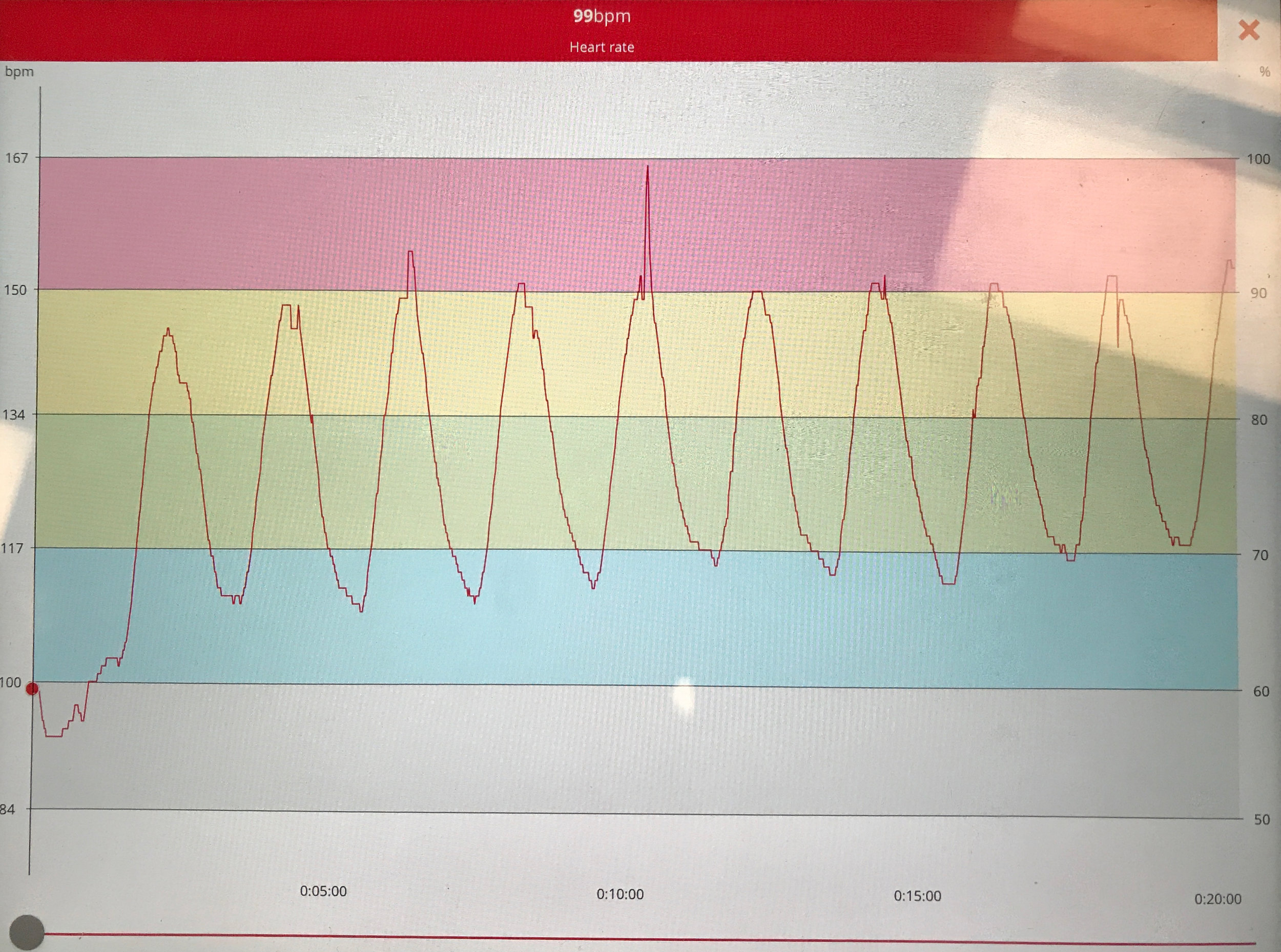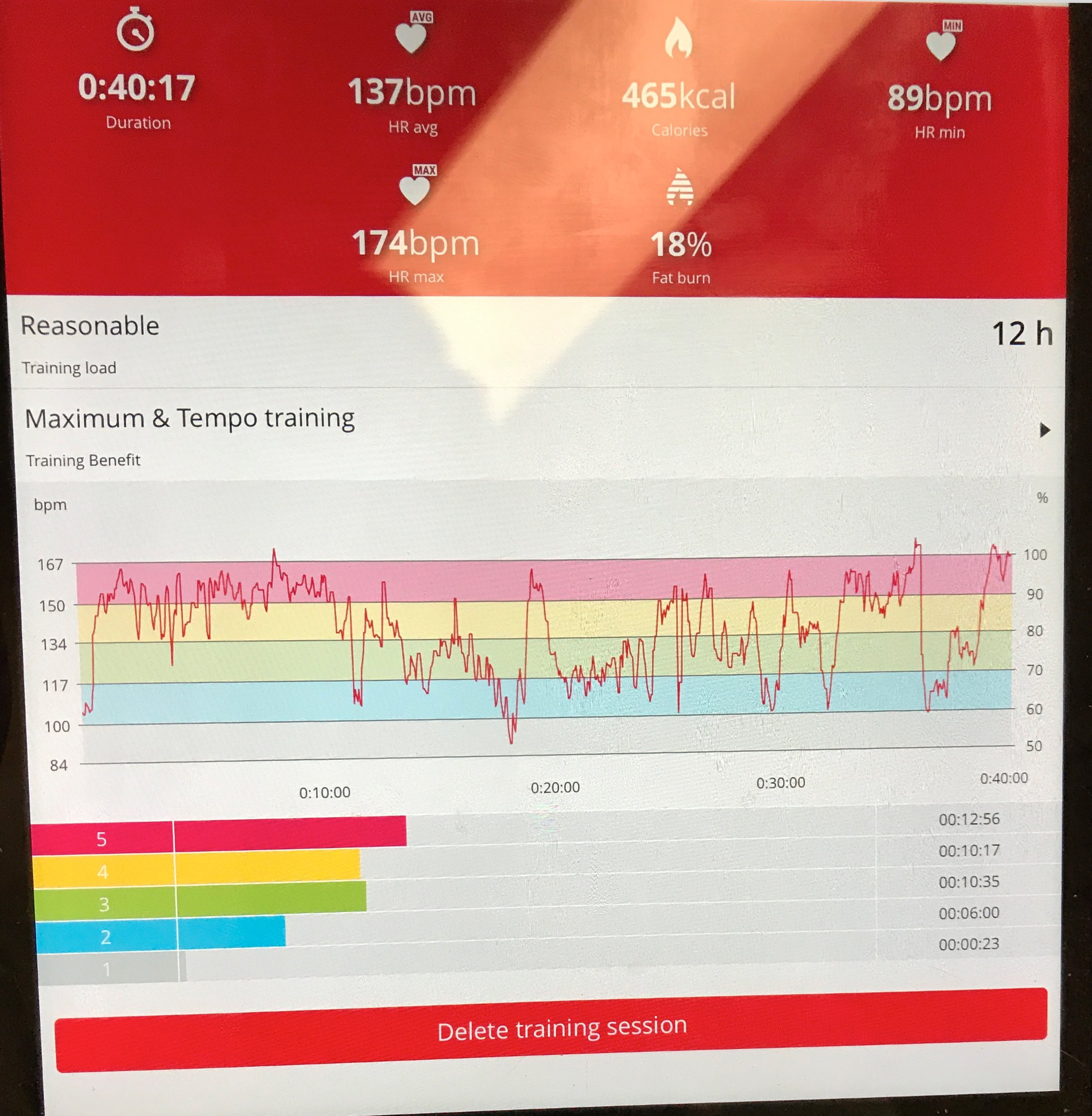Sports heart rate monitor avoids catastrophe
Watch blogpost as video below, or listen on your podcast app (under Gregory Schmidt)
50 year old man presents to the emergency room.
Internal Medicine is consulted.
Entrance complaint: "patient says his heart rate monitor is acting strange”
“Doc, my Polar Heart Rate band has been acting up in the last few weeks. I thought I should come in and get it checked out.”
…
By now the patient been labeled by ER staff as ‘crazy’ / ‘wasting their time’ / ‘overly concerned with his health’ / ‘etc.
The story: He has absolutely no symptoms. Feels very well.
For years when training he wears a Polar Heart Rate Monitor chest strap that is synced to his phone. This helps him target his heart rate while training to optimize burning calories.
Over the last few weeks he has noticed a few very short spikes in the workout heart rate tracing.
A few tracings from preceding weeks are shown below. He often does circuit training / weights - which is why the workout has a sinusoidal pattern to it. However, every so often there is a single high spike.
To investigate this further, he starts wearing the heart rate band while going for walks and for longer periods of time at rest.
The patient is concerned because he cannot explain why his heart rate spikes to 160 so frequently. Yesterday it was sustained at an elevated rate for a significant part of the last day.
Inspect the tracings for yourself
Vitals at triage, and throughout entire stay in ER - irregularly irregular.
This man has atrial fibrillation.
Clearly its been slowly coming on over the last few weeks. Progressing from isolated spikes during peak exercise, to now a baseline resting heart rate of 100 to 160.
Comorbidities: diabetes and hypertension, high BMI.
Treatment: goes home on rate control and anticoagulation.
Prognosis: He’s completely asymptomatic today, but it was very good this was caught. Otherwise he well may have developed a tachycardia induced cardiomyopathy. Not to mention at risk for stroke.
Moral of story: don’t discredit patient generated data.
note: case is as accurate as I can recall from memory, over a year after event. This story seemed a lot more unique over a year ago. Since then, AliveCor / Kardia have become more mainstream, and the Apple Watch is now giving patient’s notifications when it detects an isolated elevated heart rate that could be atrial fibrillation.









